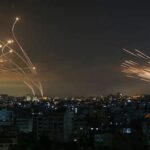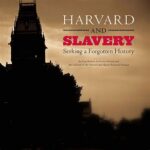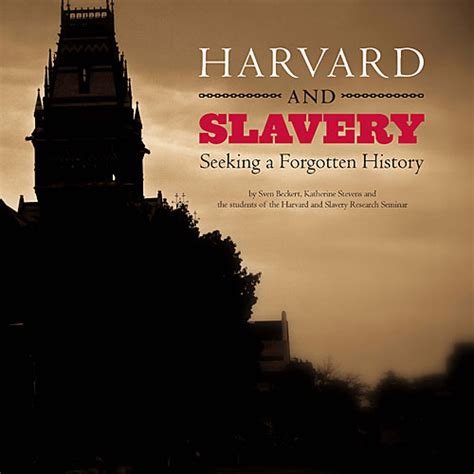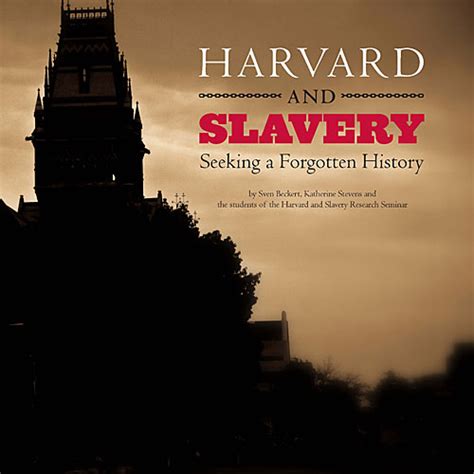
A protester’s impassioned speech directed at National Guard members deployed in Eagle Pass, Texas, regarding the ongoing border security situation, has garnered significant attention online, with many praising the speaker’s patriotic message and critical stance against current border policies. The speech, captured in a now-viral video, highlights concerns about the government’s handling of the border crisis and the role of the National Guard in enforcing existing policies.
The video, originally posted on X (formerly Twitter) by user @patriot_sounds, shows a man addressing a group of National Guard members. His remarks center on what he perceives as the government’s failure to secure the southern border and protect American citizens. He questions the morality of the Guard’s assignment, suggesting they are enabling, rather than preventing, illegal immigration. He challenges the guardsmen to consider whether their actions align with their oath to defend the Constitution, stirring debate about the ethical implications of border enforcement duties.
The man in the video emphasizes his belief that the National Guard should be utilized to actively prevent illegal crossings, arguing that the current situation is unsustainable and harmful to the nation. His rhetoric is imbued with patriotic language, framing his concerns as stemming from a deep love for his country and a desire to uphold its laws. The speech has resonated with many who share similar concerns about border security and immigration policies, propelling the video to widespread circulation and sparking intense online discussions.
The incident occurs amidst a complex and politically charged environment surrounding immigration and border security. Texas Governor Greg Abbott has taken a hard-line stance on the issue, implementing policies aimed at deterring illegal immigration, including deploying the National Guard and installing physical barriers along the border. These actions have drawn criticism from some quarters, who argue that they are inhumane and violate federal laws. The Biden administration has challenged some of these state-level measures, leading to legal battles and heightened tensions between state and federal authorities. The protester’s speech thus reflects a broader national debate about immigration policy and the appropriate role of law enforcement and military personnel in managing the border.
The video’s popularity underscores the deep divisions and strong emotions surrounding immigration issues in the United States. Supporters of the speaker have lauded his courage in voicing his concerns directly to the National Guard, viewing him as a representative of a silent majority who feel unheard by the government. Critics, on the other hand, have accused him of undermining the authority of law enforcement and promoting a divisive and potentially harmful message. The debate surrounding the speech highlights the challenges of finding common ground on immigration policy in a highly polarized political landscape.
While the identity of the speaker remains unconfirmed by major news outlets, the video has amplified the voices of those advocating for stricter border enforcement and questioning the government’s approach to immigration. The use of social media to disseminate such messages demonstrates the power of citizen journalism and the ability of individuals to influence public discourse. The incident serves as a reminder of the importance of civil discourse and the need for constructive dialogue on complex issues facing the nation.
Expanded Details and Context
The speech, as documented in the viral video, presents a multifaceted critique of the current border security measures. The speaker’s core argument rests on the premise that the National Guard’s presence in Eagle Pass, while ostensibly intended to secure the border, is in reality facilitating the processing of undocumented immigrants rather than preventing their entry. He contends that the Guard is essentially acting as a support system for those crossing illegally, providing assistance and guidance after they have already breached the border. This, he asserts, is a misallocation of resources and a betrayal of the Guard’s oath to protect the nation.
He directly addresses the Guardsmen, challenging them to contemplate the implications of their actions. He asks whether they believe they are truly defending the Constitution by assisting individuals who are violating immigration laws. He questions their motivations, suggesting that they may be complicit in a system that is detrimental to the country. This direct confrontation aims to provoke introspection and encourage the Guardsmen to reconsider their role in the border enforcement strategy.
The speaker’s words are carefully chosen to resonate with patriotic sentiments. He invokes the ideals of national sovereignty, the rule of law, and the importance of protecting American citizens. He frames the border crisis as a threat to these core values, arguing that uncontrolled immigration undermines the nation’s security and economic stability. By appealing to these deeply held beliefs, he seeks to galvanize support for his position and create a sense of urgency around the issue.
The context surrounding the speech is crucial to understanding its significance. Eagle Pass, Texas, has emerged as a focal point in the ongoing border crisis. Governor Abbott has implemented a series of increasingly stringent measures aimed at deterring illegal immigration, including the deployment of thousands of National Guard troops and the construction of razor wire barriers along the Rio Grande. These actions are part of Operation Lone Star, a state-led initiative designed to supplement federal border security efforts.
The legality and effectiveness of Operation Lone Star have been the subject of intense debate. Critics argue that the operation infringes upon federal authority over immigration matters and violates the rights of asylum seekers. They point to instances of alleged mistreatment of migrants by Texas authorities, including reports of injuries caused by razor wire and denial of access to asylum procedures. The Biden administration has challenged some of Abbott’s policies in court, arguing that they are unconstitutional and undermine federal immigration laws.
The protester’s speech can be seen as a reflection of the deep divisions within American society over immigration policy. While some support Abbott’s hard-line approach, viewing it as necessary to protect the border and enforce immigration laws, others condemn it as inhumane and xenophobic. The speech taps into these underlying tensions, providing a platform for those who feel that the government is failing to adequately address the border crisis.
The viral nature of the video underscores the power of social media to amplify dissenting voices and shape public opinion. The video’s widespread circulation has brought increased attention to the border security situation in Eagle Pass and has fueled debate about the appropriate role of the National Guard in enforcing immigration laws. The incident also highlights the challenges of navigating the complex legal and ethical issues surrounding border enforcement.
The speaker’s challenge to the National Guard raises important questions about the relationship between military personnel and civilian authorities. While the National Guard is often called upon to assist in law enforcement operations, their primary mission is to defend the nation against external threats. The use of the Guard in border enforcement operations raises concerns about the militarization of the border and the potential for conflicts between military and civilian roles.
Furthermore, the speech prompts consideration of the individual responsibilities of military personnel. While soldiers are obligated to follow orders from their superiors, they also have a moral obligation to uphold the Constitution and protect the rights of all individuals. The speaker’s challenge to the Guardsmen forces them to confront these competing obligations and to consider whether their actions are consistent with their values.
The ongoing debate surrounding immigration policy in the United States is likely to continue for the foreseeable future. The issues are complex and deeply rooted in historical, economic, and social factors. Finding common ground on these issues will require a willingness to engage in civil discourse, to listen to different perspectives, and to seek solutions that are both effective and humane. The protester’s speech, while controversial, serves as a reminder of the importance of these values in a democratic society.
The reaction to the video has been largely split along political lines. Conservative commentators and media outlets have praised the speaker for his patriotism and his willingness to challenge the government’s policies. They have portrayed him as a voice for those who feel ignored by the political establishment. Liberal commentators and media outlets have criticized the speech as divisive and inflammatory, arguing that it promotes a harmful narrative about immigrants and border security. They have accused the speaker of undermining the authority of law enforcement and inciting violence.
The debate surrounding the video highlights the challenges of engaging in productive dialogue on controversial issues in a polarized political climate. The tendency to view issues through a partisan lens often makes it difficult to find common ground and to reach solutions that are acceptable to all sides. Overcoming these challenges will require a commitment to civility, empathy, and a willingness to listen to different perspectives.
The long-term impact of the video remains to be seen. It is possible that it will fade from public attention in a short period of time. However, it is also possible that it will continue to fuel debate about immigration policy and border security for months or even years to come. The video serves as a reminder of the power of social media to shape public opinion and to influence the political landscape. It also underscores the importance of engaging in thoughtful and informed discussions about the complex issues facing the nation.
FAQ
1. Who is the protester in the video, and what are his main arguments?
The identity of the protester in the video is not confirmed by major news outlets, but he is described as a man who delivered an impassioned speech to National Guard members in Eagle Pass, Texas. His main arguments revolve around the belief that the government is failing to secure the southern border and that the National Guard is, in effect, facilitating illegal immigration rather than preventing it. He challenges the Guardsmen to consider whether their actions align with their oath to defend the Constitution, suggesting they are enabling the processing of undocumented immigrants after they have already crossed the border illegally. He argues for stricter border enforcement and a more active role for the National Guard in preventing illegal crossings.
2. What is Operation Lone Star, and how does it relate to the protester’s speech?
Operation Lone Star is a state-led initiative by Texas Governor Greg Abbott aimed at deterring illegal immigration. It involves the deployment of thousands of National Guard troops and the construction of physical barriers, such as razor wire, along the Rio Grande. The protester’s speech is directly related to Operation Lone Star because he is addressing the National Guard members who are participating in this operation. His criticism is targeted at what he perceives as the ineffectiveness of Operation Lone Star and the role of the National Guard in supporting, rather than preventing, illegal immigration as part of this operation. The protest can be seen as a reaction to the policies implemented under Operation Lone Star.
3. What has been the reaction to the video, and what does it say about the broader debate on immigration?
The reaction to the video has been largely divided along political lines. Supporters of the speaker have praised his patriotism and his willingness to challenge the government’s policies, viewing him as a voice for those who feel unheard on the issue of border security. Critics, on the other hand, have accused him of undermining law enforcement and promoting a divisive message. This division reflects the broader national debate on immigration, which is characterized by deep divisions and strong emotions. The video’s popularity underscores the challenges of finding common ground on immigration policy in a highly polarized political landscape. The differing reactions to the video highlight the various viewpoints on border security, the role of law enforcement, and the overall approach to immigration policy in the United States.
4. What are the ethical considerations raised by the protester’s speech regarding the National Guard’s role in border security?
The protester’s speech raises several ethical considerations regarding the National Guard’s role in border security. One key consideration is the potential conflict between a soldier’s duty to follow orders and their moral obligation to uphold the Constitution and protect the rights of all individuals. The speaker questions whether the Guardsmen are truly defending the Constitution by assisting individuals who are violating immigration laws. Another ethical consideration is the potential for the militarization of the border and the blurring of lines between military and civilian roles. The use of the National Guard in border enforcement operations raises concerns about the appropriate role of the military in domestic law enforcement. Finally, the speech prompts consideration of the human rights implications of border enforcement policies and the potential for mistreatment of migrants.
5. How does the viral nature of the video impact the discussion around immigration policy, and what are the potential long-term effects?
The viral nature of the video amplifies dissenting voices and shapes public opinion, bringing increased attention to the border security situation in Eagle Pass and fueling debate about the appropriate role of the National Guard in enforcing immigration laws. This can lead to increased pressure on policymakers to address the issue. Potential long-term effects include heightened political polarization, increased scrutiny of border enforcement policies, and a shift in public opinion regarding immigration. The video’s widespread circulation also demonstrates the power of citizen journalism and the ability of individuals to influence public discourse through social media. It can also impact the morale of the National Guard and influence their perspective on the border situation. Ultimately, the video’s impact will depend on how it is interpreted and utilized by various stakeholders in the immigration debate.









